




Everything For The Metal Detectorist - King Arthur Origins


King Arthur
Flag of England

Irish Flag
Flag Menu
Union Flag
Copyright All Rights Reserved by Nigel G Wilcox E-Mail: ngwilcox100@gmail.com
The Paragon Of Metal Detecting
& Archaeology
& Archaeology
5. Menu
Pages
Nicknames for Brits: From Limey to Pom - here’s what people from the UK are called around the world and why
Story by Rachel Seigel • .07.24 Factinate Media Group/msn.com [ 05.10.24]
Powered By Sispro1
Designed by Nigel G Wilcox
Member NCMD
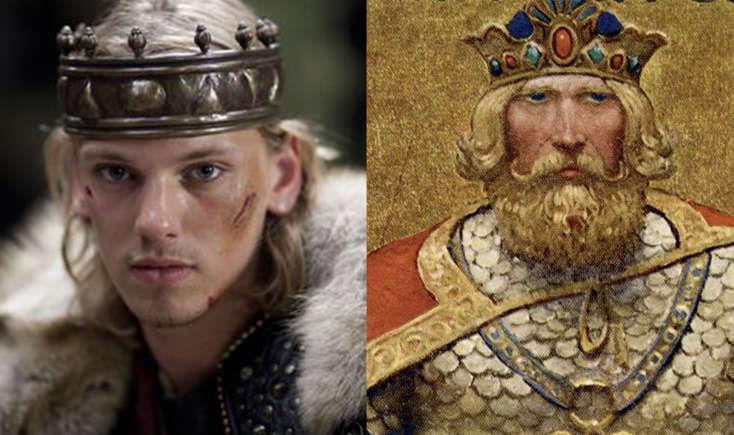
1. Riothamus
Some historians believe that the King Arthur from literature may have originated with a real lesser-known figure named Riothamus who lived in post-Roman Britain in the fifth century. Riothamus was a military leader who was described with the title of King of the Britons. He is known for crossing the English Channel into Gaul, mirroring events from Arthurian legend as described in Geoffrey of Monmouth's 12th century book History of the Kings of Britain.
Some historians believe that the King Arthur from literature may have originated with a real lesser-known figure named Riothamus who lived in post-Roman Britain in the fifth century. Riothamus was a military leader who was described with the title of King of the Britons. He is known for crossing the English Channel into Gaul, mirroring events from Arthurian legend as described in Geoffrey of Monmouth's 12th century book History of the Kings of Britain.
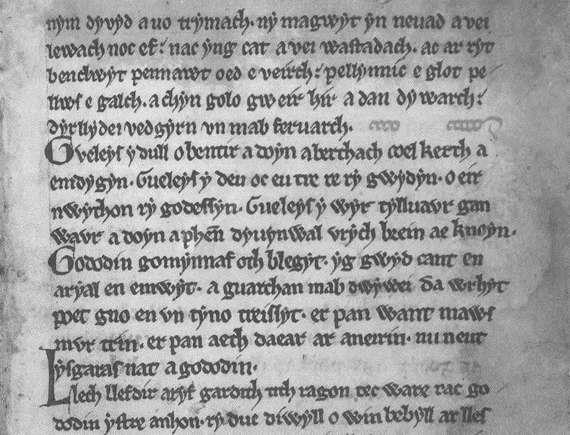
<< 2. Great Warrior ©Wikipedia
Another clue about the origins of Arthur comes from a Welsh poem called Y Gododdin. Dated somewhere between the 7th and 10th centuries, the poem celebrates the British warriors who lost their lives in battle at Catraeth in the fifth and sixth centuries, at the height of the Saxon invasion of Britain. It contains what might be the oldest known mention of King Arthur.
Another clue about the origins of Arthur comes from a Welsh poem called Y Gododdin. Dated somewhere between the 7th and 10th centuries, the poem celebrates the British warriors who lost their lives in battle at Catraeth in the fifth and sixth centuries, at the height of the Saxon invasion of Britain. It contains what might be the oldest known mention of King Arthur.
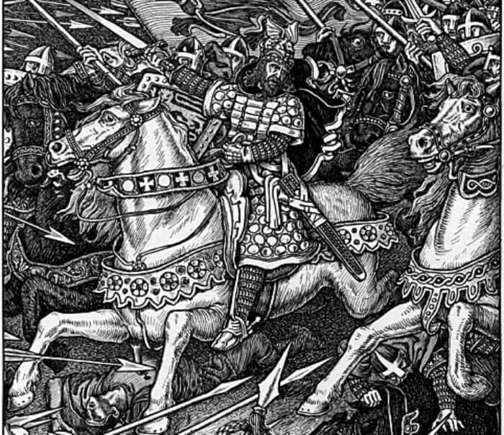
3. In Poetry ©Wikimedia Commons >>>
A poem called Historia Brittonum from around 800 AD, believed to have been the work of a Welsh monk named Nennius, describes Arthur fighting alongside other Briton kings against the Saxons. The poem ends with Arthur’s twelfth battle at Badon Hill. Another poem written about 100 years later also references the Battle of Badon, where Arthur supposedly carried a cross on his shoulders for three days and three nights before emerging victorious. Several other poems, also from the 10th century, make reference to Arthur as well. These
A poem called Historia Brittonum from around 800 AD, believed to have been the work of a Welsh monk named Nennius, describes Arthur fighting alongside other Briton kings against the Saxons. The poem ends with Arthur’s twelfth battle at Badon Hill. Another poem written about 100 years later also references the Battle of Badon, where Arthur supposedly carried a cross on his shoulders for three days and three nights before emerging victorious. Several other poems, also from the 10th century, make reference to Arthur as well. These
poems are some of the earliest records we have of a potential historical King Arthur, and they laid the foundation of the Arthurian myth. Though little is known for sure, it is generally believed that, if nothing else, the Battle of Badon did actually occur between the Britons and invading Anglo-Saxons.
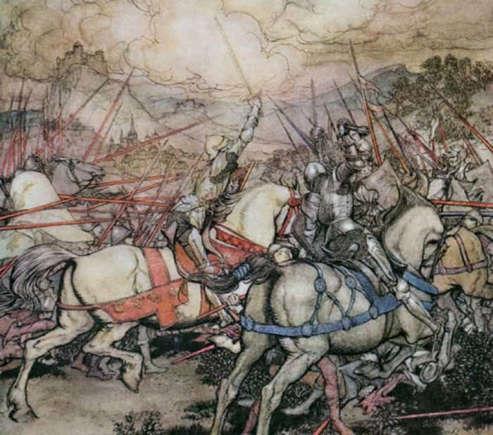
<< 4. Defeating the Saxons ©Wikimedia Commons
When Roman rule in Britain ended in the early fifth century, the Celtic Britons were vulnerable to attack. According to history, a nobleman named Vertigern brought in Anglo Saxon mercenaries to strengthen their defenses, but they turned on their employers and attempted a takeover of Briton. The invasion attempt was thwarted by an army of Britons who were led by a Briton King who might possibly have been Arthur.
When Roman rule in Britain ended in the early fifth century, the Celtic Britons were vulnerable to attack. According to history, a nobleman named Vertigern brought in Anglo Saxon mercenaries to strengthen their defenses, but they turned on their employers and attempted a takeover of Briton. The invasion attempt was thwarted by an army of Britons who were led by a Briton King who might possibly have been Arthur.
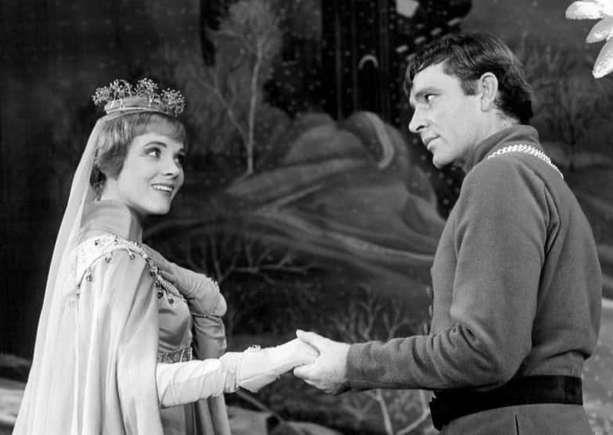
5. Oral History ©Wikimedia Commons >>
The legend of King Arthur was likely formed by the passing down of Welsh stories between generations, eventually recorded by Nennius in his Historia Brittonum (The History of the Britons). However, Nennius got his information from the oral tradition, and the time and geographical span of the different battles means it would have been impossible for a single man to fight all of them. So while there could be some fact behind these stories, they certainly can't be taken as the whole truth.
The legend of King Arthur was likely formed by the passing down of Welsh stories between generations, eventually recorded by Nennius in his Historia Brittonum (The History of the Britons). However, Nennius got his information from the oral tradition, and the time and geographical span of the different battles means it would have been impossible for a single man to fight all of them. So while there could be some fact behind these stories, they certainly can't be taken as the whole truth.
6. Folk Tale ©Flickr
Prior to the first written mention of King Arthur in the ninth century, stories about him would have all been transmitted orally, which makes it incredibly difficult to prove or disprove anything about Arthur’s existence, or to even credit any single, authoritative source. By the time the Historia Brittonum was written, he was already a folk hero, and the legend simply evolved through time. While historians are also careful to note that exaggerated does not mean imaginary, with a lack of firm evidence, it’s hard to separate the truth from the legend.
Prior to the first written mention of King Arthur in the ninth century, stories about him would have all been transmitted orally, which makes it incredibly difficult to prove or disprove anything about Arthur’s existence, or to even credit any single, authoritative source. By the time the Historia Brittonum was written, he was already a folk hero, and the legend simply evolved through time. While historians are also careful to note that exaggerated does not mean imaginary, with a lack of firm evidence, it’s hard to separate the truth from the legend.
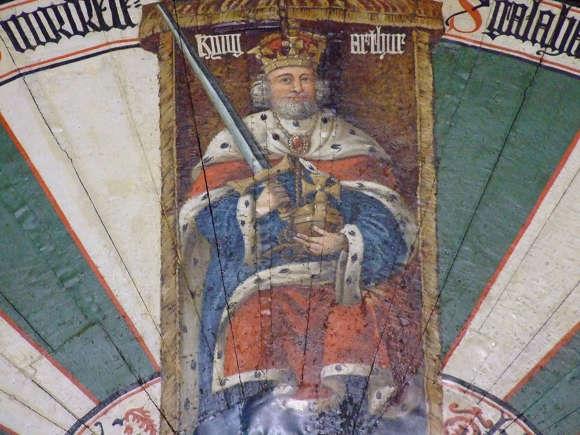
The Truth Behind The Legend Of King Arthur
1-5 Cont...




















